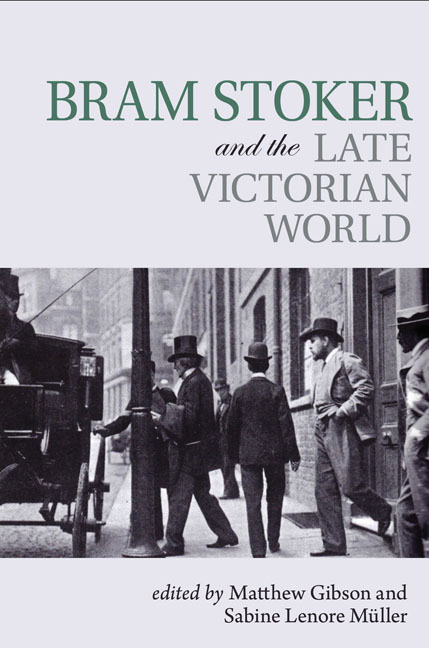1 - Bram Stoker, Dracula, and the English Common Law
Summary
Introduction
Over the course of the last two decades or so there has been a wide range of biographical and critical responses to Bram Stoker and his literary oeuvre: Bram Stoker in relation to Henry Irving; Bram Stoker in relation to nineteenth- century Ireland; Bram Stoker and homosocial desire; Bram Stoker in relation to the homosexual subcultures of the period; Bram Stoker and the concept of modernity; Bram Stoker in relation to the Victorian stage, particularly the Lyceum; Bram Stoker as Victorian and Edwardian man of letters; and, of course, Bram Stoker as the author of Dracula. In many cases these approaches, and there are others, tend to overlap.
One issue that has received scant attention, however, has been Stoker’s legal career. This is all the more surprising as it is generally accepted that those writers who have occupied the lawyer's stool for however short a period, and no matter how unwillingly, tend to develop a kind of legal imagination which informs all their subsequent work. This is certainly the case with Balzac, Dickens, and Wilkie Collins, to name but three.
In many cases, only a minimal formal training—indeed, in some cases (Trollope provides a good example), no formal training of any kind—is necessary to develop this legal imagination. Balzac spent only two-and-ahalf years in the mid-1820s as a junior legal clerk, learning how to draw up contracts, learning how to get out of them, and, more importantly, learning that there is no defense against the legal profession. Not surprisingly, the experience marked him for life. “It is difficult for a young man to remain pure”—Balzac later wrote with characteristic pessimism about a legal education—“he will have seen the oily wheels of every fortune, the hideous wrangling of heirs over corpses not yet cold, the human heart grappling with the Penal Code.” Not surprisingly, Balzac is often seen as the pre-eminent nineteenth-century French author with regard to matters of legal chicanery and unhappy marriages.
Dickens's hated legal career was even more short-lived. But his stint, aged fifteen, as a junior clerk at the premises of Ellis and Blackmore in Holborn had a similar level of impact on his future development as a writer.
- Type
- Chapter
- Information
- Bram Stoker and the Late Victorian World , pp. 9 - 32Publisher: Liverpool University PressPrint publication year: 2019



